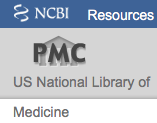Korean J Physiol Pharmacol. 2018 Jan;22(1):101-110. doi: 10.4196/kjpp.2018.22.1.101. Epub 2017 Dec 22.
Caffeic acid phenethyl ester protects against photothrombotic cortical ischemic injury in mice.
Authors
Hwang SA, Kim CD, Lee WS.
Abstract
In this study, we aimed to investigate the neuroprotective effects of caffeic acid phenethyl ester (CAPE), an active component of propolis purified from honeybee hives, on photothrombotic cortical ischemic injury in mice. Permanent focal ischemia was achieved in the medial frontal and somatosensory cortices of anesthetized male C57BL/6 mice by irradiation of the skull with cold light laser in combination with systemic administration of rose bengal. The animals were treated with CAPE (0.5-5 mg/kg, i.p.) twice 1 and 6 h after ischemic insult. CAPE significantly reduced the infarct size as well as the expression of tumor necrosis factor-α, hypoxiainducible factor-1α, monocyte chemoattractant protein-1, interleukin-1α, and indoleamine 2,3-dioxygenase in the cerebral cortex ipsilateral to the photothrombosis. Moreover, it induced an increase in heme oxygenase-1 immunoreactivity and interleukin-10 expression. These results suggest that CAPE exerts a remarkable neuroprotective effect on ischemic brain injury via its anti-inflammatory properties, thereby providing a benefit to the therapy of cerebral infarction.

- THESE STATEMENTS HAVE NOT BEEN EVALUATED BY THE FOOD AND DRUG ADMINISTRATION. THIS IS NOT INTENDED TO DIAGNOSE, TREAT CURE OR PREVENT ANY DISEASE.